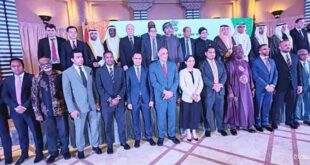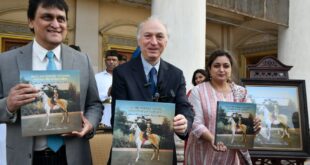By: Asad Mirza
The exponential growth of Social Media services in the recent years, with every person becoming a photographer or a journalist or a critic has transformed our society to a completely new one, where most of us are living with two personas, one our original and one our Online one, with certain details modified.
The spread of social media platforms has not only changed our habits and manner of interaction, it has made inroads into virtually every sphere of life and politics and related elections at every level, have also not remained aloof in this. Gone are the days when voters used to be influenced by leading percentages of the politicians or their chances of winning through Opinion Polls or Exit Polls.
One election in which deception has made a considerable role is the British general elections. These days, everyone is concerned about foreign actors spreading disinformation in the run-up to elections on 12 December. Though till now no one had to worry about the governing party indulging in the same practice, but now there are charges of even that.
To the surprise of no one, the UK election campaign has unleashed yet more disinformation and media manipulation, with political parties stepping up to grab the headlines. In some respects, this online warfare shouldn’t come as a great surprise.
In recent days, the investigations have unearthed a fake Labour manifesto website, the continued circulation of a hoax targeting the Liberal Democrat leader, and a misleadingly edited video of the UK’s shadow equalities minister.
In addition to the social media hoaxes, campaigners have hit the traditional media also by camouflaging the campaign literature as newspapers. ‘Fake’ newspapers have been posted through voters’ letterboxes in the run-up to the elections. This is in addition to the use of Bots, Trolls and even Cyborgs by the campaigners to launch an unprecedented attack on their rivals by propagating false and malicious messages.
Investigations by independent think tanks have found the ‘fake’ newspapers — including ‘St. Albans and District News’, ‘Hazel Grove Gazette’ and ‘Cheadle Challenger’ —in at least 13 constituencies in recent days. The Liberal Democrats appear to be promoting the literature in at least 12 of these areas.
The latest to hit the social media scene is the introduction of ‘Deepfake’- videos of political leaders delivering speeches or comments, which they have not really made and the manner in which it has been produced, and the delivery by real politicians leads one to believe that they are genuine.
For most part, the governing part standing accused of deliberately duping the public is deeply problematic. The wider context is important, too. This election is taking place in the shadow of a highly charged argument about Russian interference in British democracy. Many people have serious and legitimate concerns about foreign actors trying to influence UK politics, especially in the context of Brexit.
But the issue is: where does the doctoring of social media posts, newspaper or videos in electoral contests stop? What are the limits?
One malevolent problem relates to “deepfake” technology, where highly enhanced video shows imagery that never happened but with a production quality where it is difficult to detect that the image is fake. Up until now, creating deepfakes has mostly been the preserve of cyber bullies and pornographers. But the political dimension was recently highlighted in the BBC TV programme, The Capture, where a soldier is framed for a murder, he didn’t commit, by the intelligence services to allow them to continue using deepfake technology to frame and pursue suspected terrorists.
It’s no surprise every one is concerned and they ought to be. If videos can be made showing politicians saying and doing things they have not done; using racist language or taking drugs, then deepfakes can result in creating public panic and moral outrage and thereby damage a politician’s chances in an election.
Deepfake technology has the potential to shift so-called opposition research, where political parties dig up the dirt on their opponents usually using their own statements against them, from a reactive opportunist approach to a proactive one where they make things up. Why wait for a politician to do something wrong when you can simply pay someone to doctor a video about them?
What’s even more worrying is that this kind of technology might not just be used by domestic politicians against each other but might also be used by state adversaries or terrorist groups against legitimate politicians? What’s to stop Russia from using it to discredit politicians in Ukrainian elections? Fake news shifts from a means to sow distrust in a society into a fully-fledged weapon that could bring about regime change.
The reality is that in the modern era the Western world is facing an unprecedented threat to the one of the most sacrosanct principles of any democracy- free and fair elections.
The spectre of electoral interference from Russia – whether in the form of hacking, dark money, bot armies, or a plethora of other techniques – has hung over elections and referendums from France to Ukraine, and from the USA to the UK.
So there is a wider principle to this – but what do we do about it? After all, political advertising does not have to be legal, decent, honest and truthful like commercial advertising has to be. It’s not regulated by a body like the Advertising Standards Authority. But, in a world of deepfakes and no truth, perhaps it is time that political advertising was regulated? The only problem here will be getting political parties to agree to it. Plus a will to act.
 Gawah (The Witness) – Hyderabad India Fearless By Birth, Pristine by Choice – First National Urdu Weekly From South India – Latest News, Breaking News, Special Stories, Interviews, Islamic, World, India, National News
Gawah (The Witness) – Hyderabad India Fearless By Birth, Pristine by Choice – First National Urdu Weekly From South India – Latest News, Breaking News, Special Stories, Interviews, Islamic, World, India, National News





